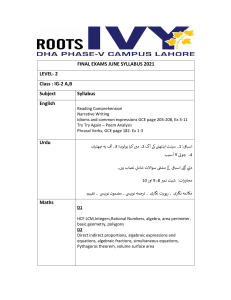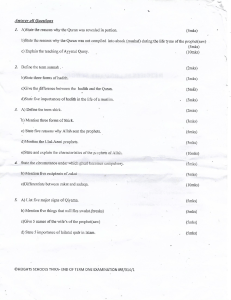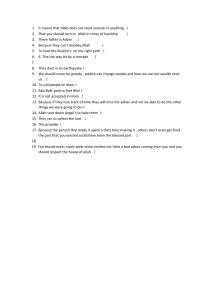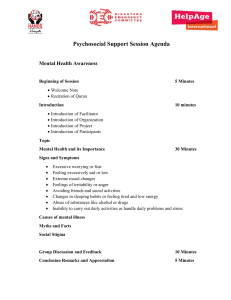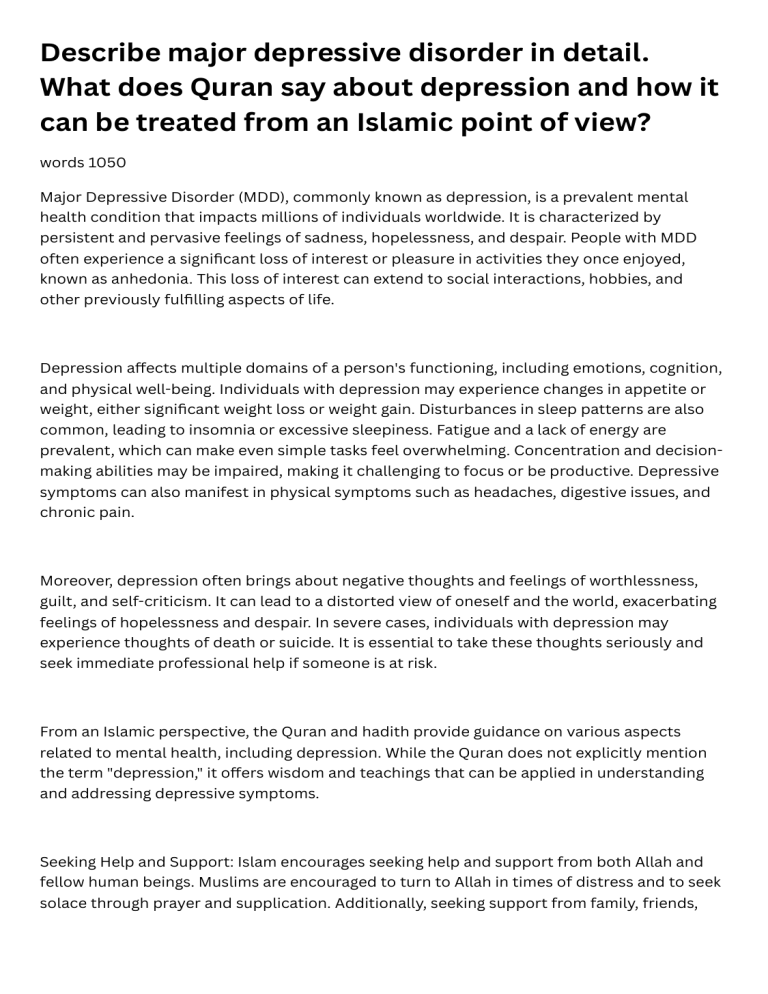
Describe major depressive disorder in detail. What does Quran say about depression and how it can be treated from an Islamic point of view? words 1050 Major Depressive Disorder (MDD), commonly known as depression, is a prevalent mental health condition that impacts millions of individuals worldwide. It is characterized by persistent and pervasive feelings of sadness, hopelessness, and despair. People with MDD often experience a significant loss of interest or pleasure in activities they once enjoyed, known as anhedonia. This loss of interest can extend to social interactions, hobbies, and other previously fulfilling aspects of life. Depression affects multiple domains of a person's functioning, including emotions, cognition, and physical well-being. Individuals with depression may experience changes in appetite or weight, either significant weight loss or weight gain. Disturbances in sleep patterns are also common, leading to insomnia or excessive sleepiness. Fatigue and a lack of energy are prevalent, which can make even simple tasks feel overwhelming. Concentration and decisionmaking abilities may be impaired, making it challenging to focus or be productive. Depressive symptoms can also manifest in physical symptoms such as headaches, digestive issues, and chronic pain. Moreover, depression often brings about negative thoughts and feelings of worthlessness, guilt, and self-criticism. It can lead to a distorted view of oneself and the world, exacerbating feelings of hopelessness and despair. In severe cases, individuals with depression may experience thoughts of death or suicide. It is essential to take these thoughts seriously and seek immediate professional help if someone is at risk. From an Islamic perspective, the Quran and hadith provide guidance on various aspects related to mental health, including depression. While the Quran does not explicitly mention the term "depression," it offers wisdom and teachings that can be applied in understanding and addressing depressive symptoms. Seeking Help and Support: Islam encourages seeking help and support from both Allah and fellow human beings. Muslims are encouraged to turn to Allah in times of distress and to seek solace through prayer and supplication. Additionally, seeking support from family, friends, and the community is emphasized. This aligns with the importance of seeking professional help and therapy when dealing with depression. Patience and Trust in Allah: The Quran emphasizes the importance of patience and trust in Allah's plan. Muslims are encouraged to have faith and seek comfort in knowing that Allah is aware of their struggles and will provide relief in due time. This perspective can provide solace and hope to individuals experiencing depression, reminding them that their difficulties are temporary and that Allah's mercy and support are always available. Remembrance of Allah and Recitation of Quran: Engaging in acts of remembrance and recitation of the Quran can provide spiritual healing and tranquility. Muslims are encouraged to turn to the Quran as a source of guidance and solace. Recitation, reflection, and understanding of the Quranic verses can help individuals find strength, motivation, and a sense of purpose in their struggle against depression. Acts of Worship and Good Deeds: Engaging in acts of worship and good deeds is highly encouraged in Islam. Acts such as prayer, charity, fasting, and helping others not only strengthen one's relationship with Allah but also contribute to overall psychological wellbeing. Engaging in these acts can provide a sense of purpose, fulfillment, and positive reinforcement, which can be beneficial for individuals dealing with depression. In Islam, seeking help and support from Allah is highly encouraged. Muslims are encouraged to turn to Allah in times of distress, seeking solace, guidance, and strength through prayer and supplication. The act of connecting with the Divine and placing trust in Allah's plan can provide comfort and hope during difficult times, including when dealing with depression. Moreover, Islam emphasizes the importance of seeking support from family, friends, and the community. Building a strong support network is seen as crucial in Islam, as it fosters a sense of belonging, understanding, and empathy. Seeking assistance from loved ones, whether through emotional support, practical help, or simply having someone to talk to, can provide individuals with a sense of comfort and relief. Engaging in acts of worship and good deeds is another significant aspect of addressing depression from an Islamic perspective. Muslims are encouraged to engage in regular acts of worship, such as performing prayers, reciting the Quran, and observing fasting. These acts not only strengthen one's connection with Allah but also provide a sense of spiritual fulfillment and peace. Engaging in good deeds, such as giving charity, helping others, and practicing kindness, not only benefits those receiving the acts of kindness but also promotes a positive mindset and a sense of purpose for the individual performing the deeds. However, it is important to note that while seeking spiritual solace and incorporating Islamic teachings can be supportive, depression is a complex mental health condition that often requires professional intervention. Islamic teachings do not discourage seeking medical or psychological help. Islam promotes a holistic approach to well-being that includes seeking both spiritual and worldly solutions to address mental health challenges. Therefore, individuals are encouraged to seek professional help and therapy when dealing with depression to receive appropriate diagnosis, treatment, and support. Treatment for depression from an Islamic point of view involves a comprehensive approach that may include the following: Seeking Professional Help: Islam encourages seeking professional help from qualified mental health professionals who can provide appropriate diagnosis, therapy, and medication if necessary. Seeking professional help is seen as a means of utilizing the knowledge and skills bestowed upon professionals by Allah to seek relief and recovery. Self-Care: Islam emphasizes self-care and self-compassion. This includes taking care of one's physical, emotional, and spiritual well-being through adequate rest, nutrition, exercise, engaging in positive activities, and seeking support from loved ones. Prayer and Supplication: Engaging in regular prayer and supplication to seek guidance, strength, and healing from Allah. Muslims are encouraged to turn to Allah in times of distress, expressing their emotions and seeking His assistance. Community Support: Engaging with the Muslim community and seeking support from family, friends, and religious leaders who can provide emotional support, encouragement, and guidance. In summary, Islam offers guidance and teachings that can be applied in understanding and addressing depression. Seeking help, patience, trust in Allah, remembrance of Allah, engaging in acts of worship and good deeds, and seeking community support are all important aspects of addressing depression from an Islamic perspective. It is crucial to remember that seeking professional help and utilizing evidence-based treatment approaches is an essential component of addressing depression effectively. reference: 1. Seeking Help and Support: "And seek help through patience and prayer, and indeed, it is difficult except for the humbly submissive [to Allah]" (Quran 2:45).Quran. Surah 2: Verse 45. In The Noble Quran "O you who have believed, seek help through patience and prayer. Indeed, Allah is with the patient" (Quran 2:153)..Quran. Surah 2: Verse 153. In The Noble Quran The Prophet Muhammad (peace be upon him) said, "The believer to another believer is like a building whose different parts enforce each other" (Sahih Bukhari). Sahih Bukhari. (Year). Vol. 1: Hadith 481. Translated by Muhammad Muhsin Khan. Riyadh, Saudi Arabia: Darussalam. 2. Patience and Trust in Allah: "And We will surely test you with something of fear and hunger and a loss of wealth and lives and fruits, but give good tidings to the patient" (Quran 2:155). .Quran. Surah 2: Verse 155. In The Noble Quran "And rely upon Allah; and sufficient is Allah as Disposer of affairs" (Quran 33:3). .Quran. Surah 33: Verse 3. In The Noble Quran 3. Remembrance of Allah and Recitation of Quran: "Indeed, in the remembrance of Allah do hearts find rest" (Quran 13:28)..Quran. Surah 13: Verse 28. In The Noble Quran "And We send down of the Qur'an that which is healing and mercy for the believers" (Quran 17:82)..Quran. Surah17: Verse 82. In The Noble Quran The Prophet Muhammad (peace be upon him) said, "No people gather in a house of the houses of Allah, reciting the Book of Allah and studying it among themselves, except that tranquility descends upon them, mercy covers them, angels surround them, and Allah mentions them to those in His presence" (Sahih Muslim). Sahih Muslim. (Year). Vol. 4: Hadith 2699. Translated by Abdul Hamid Siddiqui. Riyadh, Saudi Arabia: Darussalam. 4. Acts of Worship and Good Deeds: "And establish prayer and give zakah and bow with those who bow [in worship and obedience]" (Quran 2:43). .Quran. Surah 2: Verse 43. In The Noble Quran "Indeed, the men who practice charity and the women who practice charity and [they who] have loaned Allah a goodly loan - it will be multiplied for them, and they will have a noble reward" (Quran 57:18). .Quran. Surah 57: Verse 18. In The Noble Quran The Prophet Muhammad (peace be upon him) said, "The likeness of the one who remembers his Lord and the one who does not remember Him is like that of a living to a dead person" (Sahih Bukhari). Sahih Bukhari. (Year). Vol. 8: Hadith 6406. Translated by Muhammad Muhsin Khan. Riyadh, Saudi Arabia: Darussalam.


